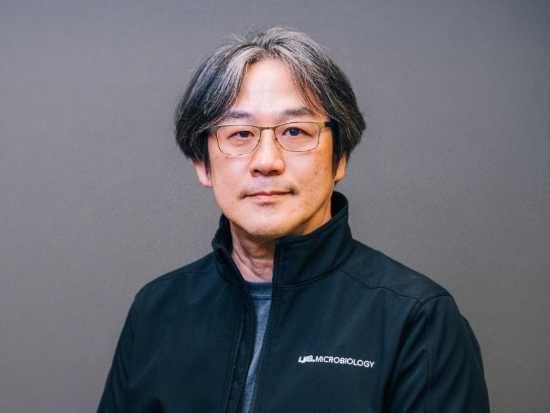 Masakazu Kamata, Ph.D., associate professor in the UAB Department of Microbiology, has been selected as a recipient of an R01 grant from the NIH for his study, “The resurgence of antibody-drug conjugates via PMPC-polymer engineering.”
Masakazu Kamata, Ph.D., associate professor in the UAB Department of Microbiology, has been selected as a recipient of an R01 grant from the NIH for his study, “The resurgence of antibody-drug conjugates via PMPC-polymer engineering.”
“Significant strides have been made in cancer treatment, leading to notable improvements,” Kamata said. “However, these advances have shown limited success in cases where cancer spreads, particularly to the brain, resulting in an average survival time of about six months. Nearly 30 percent of cancers can metastasize to the brain, and no curable treatment exists. We aim to eradicate these aggressive cancers with innovative nano drugs delivered safely via intravenous injection.”
Kamata explains the research that will be supported by the grant and his goals for the study.
What motivated you to pursue this specific area of research?
Kamata: The development of innovative therapies for cancers that have metastasized is necessary given their high frequency, significant mortality, limited effective treatment options, and profound impact on patients' quality of life. Advances in recent cancer therapies offer hope for more effectiveness, ultimately aiming to improve survival rates with brain metastases.
Nevertheless, these interventions usually cannot be cured completely and may result in substantial side effects. The chances are good for our polymer-based novel anti-cancer nanodrugs to safely and effectively remove these cancers.
What are the primary goals and objectives of your study?
Kamata: Our group has created cutting-edge nanomedicine capable of efficiently reaching the brain to treat cancer while preserving brain functions (PCT/US24/37313). Refinements in this approach will facilitate a more advanced handling of tumor heterogeneity.
How do you plan to achieve these goals over the course of the grant period?
Kamata: We will assess a range of drug payloads in our animal models, which exhibit considerable heterogeneity, including cancer samples collected from patients.
What are the potential implications of your research findings for the scientific community and public health?
Kamata: The primary aim is to come up with a therapy that can effectively treat breast and lung cancers, which often metastasize to the brain. Subsequently, we will employ the same approach as a platform for other cancers that tend to metastasize to the brain and for primary brain tumors.
How will the RO1 grant facilitate your research efforts?
Kamata: This R01 was made possible thanks to the support from O'CCC Pre-R01. In addition, a new grant from the Cancer Research Institute (CRI5425) has been awarded to support the development of a novel therapy for diffuse intrinsic pontine glioma (DIPG) utilizing the same platform proposed in the R01. Both grants will significantly aid in advancing research on more complex illnesses, such as different types of brain tumors and other brain diseases, such as Alzheimer's.